When I was a kid, I knew two things: one, religion was a waste of time, and two, I did not want to be a stay-at-home mom, because I had no intention of ever getting married or having children. Eventually, I grew up, and it turned out that neither of these things were actually true for me. My religion has proven to be the exact opposite of a waste of time, especially as it concerns surviving the rotation of carpools, play dates, and forgotten anniversaries/holidays/birthdays.
Edit #1: So, it turns out that July 7 is my husband’s birthday. Whoops. This year, I plan on baking a cake, and since I can set a watch to the reliability of me screwing it up halfway through, I will be telling him that it was made by our daughter to circumvent anything but affection at the ongoing reminder that when something is done half-assed, it’s adorably forgivable when done by a tiny person. Also, it will be entirely believable, as there’s no way in hell our particular cherub will ever feature on “MasterChef Junior.” Trust me; we’ve watched the show enough to know.
I should start by saying that I’m a transplant to northern California, but I was born and raised in Kansas. To say I was a square peg in the round (hell)hole that was Johnson County would be something of an understatement. I’m not the type to fit in much of anywhere, and that was especially true in the suffocating suburbs of Kansas City (Kansas, not Missouri; to recycle an old joke, you know a city has a lot to apologize for when no one state wants to claim it). Frankly, I blame a fair amount of this nonsense on the lingering cultural association of “The Wizard of Oz.”
Which reminds me:
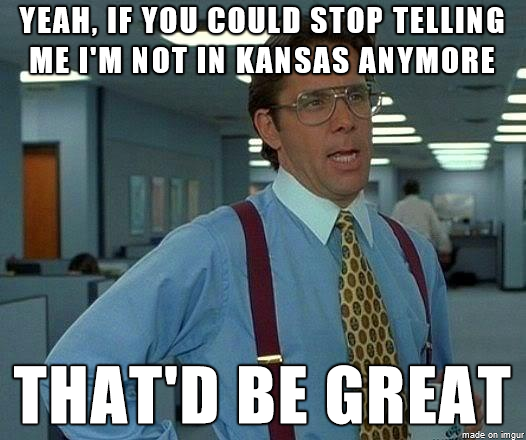
I’m just saying, I think I figured this out when I registered my car at the California DMV.
But hey, it isn’t all bad. I just read this great piece by Steve Kraske out of the Kansas City Star today about the need to re-name the J.C. Nichols fountain due to generations of racist housing policies and their disproportionate impact on families of color within the community.
From the article:
Nichols brought the Country Club Plaza and great neighborhoods to Kansas City, but he deliberately split this town between blacks and whites for generations.
Through restrictive deeds, Nichols situated white people in better neighborhoods, and that resulted in their children going to better schools. He deprived generations of African-Americans and children of certain religious faiths of a quality education. He prevented their parents from accumulating the personal wealth that comes from owning homes in prosperous neighborhoods.
He did that by stipulating that only white people could live in the homes he built in some of our city’s most desirable areas: Armour Hills, Brookside and Crestwood on the Missouri side; Fairway, Mission Hills and Prairie Village in Kansas.
In short, much of what he left to this city was delivered on the backs of African-Americans. It wasn’t right then, nor is it today.
Enter topical segue: it’s not a coincidence I attended (public) school with swaths of rich white kids. At the time, though, it seemed to me that I was especially out of place because I wasn’t cut from the same conservative, Christian cloth as so many of the people I encountered, from teachers to peers to my own family of origin.
One would only need to review my book choices to get a deeper appreciation of the wider (read: confusing) picture. In elementary school, I became obsessed with two polar opposite book series. The first, The Baby-sitters Club, was about a group of teen girls who start up a babysitting business which allows them to explore friendship, moneymaking, and other life lessons like how to survive the disaster of being stranded on a deserted island thanks to a tropical storm interrupted the annual sailboat race with two dozen neighborhood kids you’re responsible for babysitting despite an average age difference of less than three years between you, all of which were navigated in chapter books that could easily be condensed down into 30 minute situational comedies on the Disney Channel.
Did I mention that they were? Because they were.
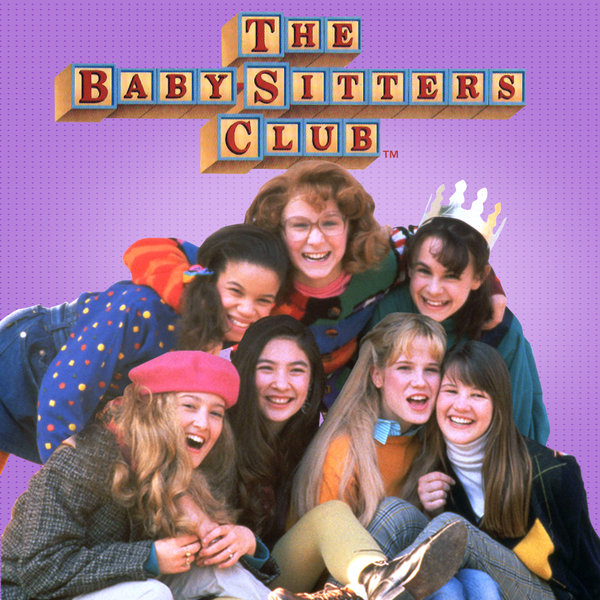
Yes, this was a thing that actually happened.
The other series was Op-Center, by Tom Clancy. Well, supposedly it was created by Tom Clancy and some other guy no one has heard of, but Wikipedia says the first dozen books or so were written by another guy no one has seemingly heard of. All of this nuance was beyond my grasp at the tender age of nine, which is how old I was when I found the first book in the downstairs bathroom and browsed through it. I’ll skip over the obvious, low-hanging fruit joke about the shitter and communicate in pictorial form instead.
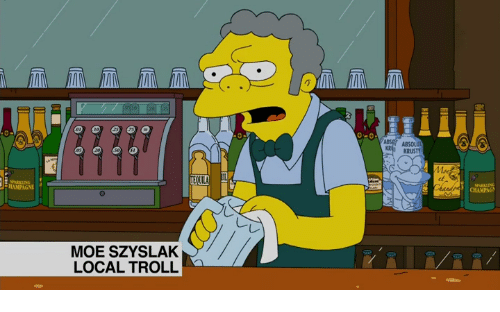
Op-Center is confirmed as Moe’s favorite book in “The Simpsons” episode, ‘Sweets and Sour Marge.’ New low.
In hindsight, so much of “Op-Center”–and its sequels–defied my understanding. I’m frankly impressed I could even read beyond the dedication page. However, this amazement lasted only until last week, when I discovered that Op-Center borrowed a page out of the playbook of The Baby-sitters Club and launched their own 30-minute long situational comedy series on the Disney Channel in the form of a 4-hour mini-series on NBC with the likes of C-list celebrity Harry Hamlin and permanent meme fixture Wilford Brimley.
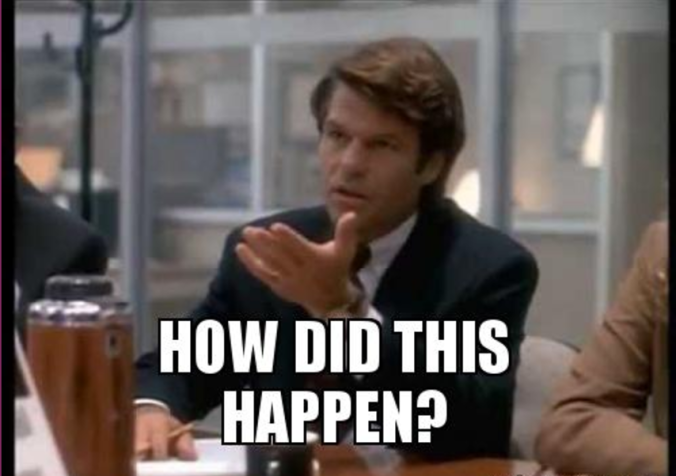
We wish we knew, Harry; we wish we knew.
Edit #2: It would be incredibly easy to insert a Wilford Brimley “Diabeetus” joke in here, and for many, probably funny as hell, too. But a quick review of ableism and its various problems reminded me why the best humor punches up, rather than down. Calling out oppression will, if you haven’t noticed already, pepper heavily into my small corner of the internet, so here’s an amicable reminder about the harm of “casual” ableism in jokes about diabetes and diabetics. Even better, some soul far more generous than me created actual flashcards for a more practical grasp of disability in society and how it is treated. Future updates on this blog will actively attempt to be more inclusive of disability.
But I digress.
I mention these two book series to highlight the conflicting messages of my upbringing. On the one hand was a series of books about female empowerment, authored by Ann M. Martin, a badass queer woman, that sold me on the idea that women could do anything. As adolescents, these girls created a business that had more ethics and detail than most of the corporate toadies robbing the average taxpayer blind. The more subtle messages exposed me to the point of view of women of color struggling against the white world with Jessie, who also became–perhaps, unintentionally–a representation of ableism in choosing to become proficient at sign language. Claudia, one of the founding members, turned ethnic stereotypes on their head by being a Japanese, fashion-obsessed artist with a sweet tooth and terrible grades. Characters subverted the typical paradigms of girl-hood by being tomboys (Kristy), sick (Stacy), and beautiful (Mallory). The book series also dealt with the unraveling of the typical family structure by discussing divorce; navigating the world of blended families made up a solid one-fourth of all storylines.
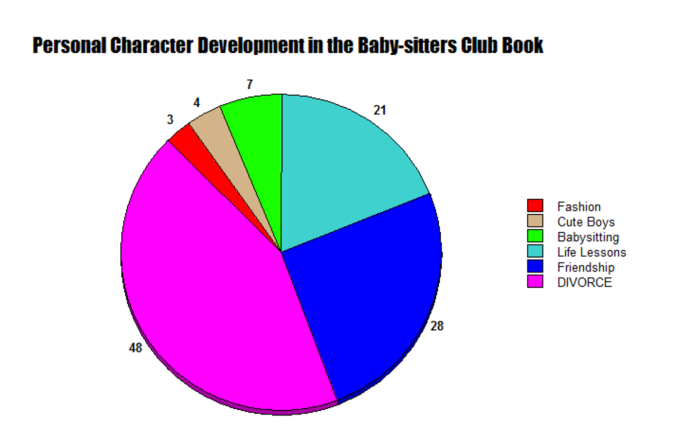
OK, probably not a fourth; after all, I’m pretty confident that these numbers add up to more than 100 percent. Can I be certain? Nope, I’m not a scientist. Or a gifted pie chart maker, by the looks of things.
Anyway, in other words, while I wanted to live in this world dreamed up by Martin, Clancy’s magnum opus reminded me that I was stuck in reality. Not that it was all bad; after all, I loved the characterization of folks, but it speaks volumes that I was consistently most drawn to complex detailing related to the characters of Bob Herbert, the wheelchair-bound widower and that of General Mike Rodgers. It’s been too long since I read the books to actually remember whether Clancy wrote him as a black man of color, but that’s how I always pictured him; it’s similarly worth noting that the character is played by the great Carl Weathers in the aforementioned mini-series adaptation.
Edit #3: I was going to put a picture here featuring Weathers in the appropriate military regalia for the part, but I could only find a publicity still in German. I’m actually pretty cool with how Germany has been responding to the dumpster fire that is our current political administration, but less wild about watermarks. So I present this amazing reminder of the parodical version Weathers plays of himself in the “Arrested Development” universe instead:
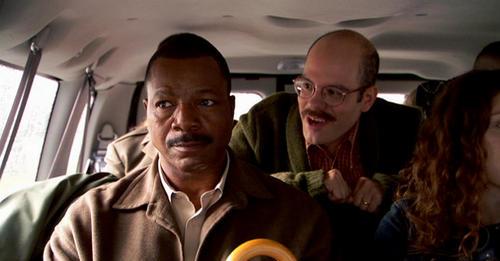
I’m not captioning this about food. Stew can’t make me.
Interestingly, what also stands out to me is how the storytelling of Clancy’s paranoid fantasies provided plenty of foundation for the future Tea Party principles. Reading Op-Center motivated me to consume other Clancy rags, most notably the Jack Ryan series; in Debt of Honor, when Ryan demands the branches of government be made up entirely without politicians, it’s easy to see a literary roadmap for how the subsequent birth of the political careers of Sarah Palin, Rand Paul, and Ted Cruz made an election of Donald Trump possible. Alyssa Rosenberg puts more ink to the page regarding Clancy’s long-lasting effect on politics here, and it’s certainly worth the five-minute read ThinkProgress promises it to be.
The point is, I didn’t have the language skills to realize it, but the exposure to the troubling rhetoric of Clancy’s Conservapedia began to get my wheels turning about larger injustices, even as I lacked the vocabulary to articulate why certain characters, passages, and story arcs within his ‘verse bothered me. Attempting to have these conversations with immediate peer group never amounted to much beyond a reminder that, in Kansas, liberal politics were the underdog and perpetual loser of prairie politics. Years later, I would identify a keen parallel to an expression that ultimately was crystallized by Mal in the “Bushwhacked” episode of Firefly:
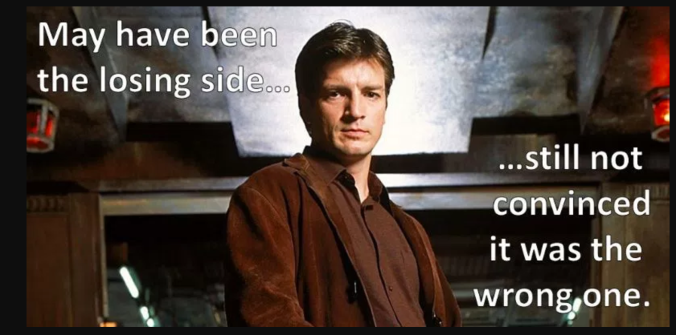
Credit to AlwaysNeverTrump for my political beliefs in a nutshell.
While I couldn’t exactly confront the books themselves, the gears in my head began to expose themselves in other circles that were slowly expanding; I was in middle school when Ellen DeGeneres came out as gay in the infamous “Puppy Episode.” Though I’d never been the kind to avoid arguments, there was a new passion that came alive in me when confronted with the utter lack of consideration shown towards this population that no one I knew seemed to belong to. It wasn’t long before I was arguing with friends, family members, and even teachers–you know who you are, Mrs. Brossom–about the moral acceptability of not only Ellen’s sexuality, but the creative direction of her show. ABC made their stance clearly when they promptly began airing with a disclaimer advising parents about the content.
From Wikipedia:
DeGeneres further noted demonstrable hypocrisy on the part of ABC, citing episodes of ABC series The Drew Carey Show and Spin City which included two men kissing (the Carey episode was even promoted using the kiss). “There’s no disclaimer on [the Carey show] at all, because it’s two heterosexual men, and they’re making fun of heterosexuality…[Spin City aired without a disclaimer] because neither (Michael J. Fox nor Michael Boatman) is really gay in real life.”
Since Wikipedia wasn’t a thing with which I was familiar in 1997, I instead channeled my frustration into real-life confrontations with people giving voice to the parameters of conduct that bothered me in Clancy’s books. I was especially incensed at how people complained about the shifting subject matter, which had suddenly become a tribute to all things gay, according to her critics. Funny, I pointed out, that no one seemed to care about “straight” dating being the focal point of shows like “F*R*I*E*N*D*S*” and “Seinfeld”–neither of which I ever watched, but read about in the glossy pages of People. We had a subscription, though given that my mom didn’t seem to like the fairytale land of Hollywood any better than the everyday citizens who made up our particular suburgatory, I don’t understand why.
It isn’t surprising, though, that with the emergence of my razorblade-and-poetry adolescence came an equally strong rejection of Christianity. I was exceptionally frustrated by the paradox of purity. Specifically, the idea of God, as presented in both the sermons of the church we walked to on Sundays and splayed in the illustrated passages of our Bible Stories for Children bedtime reading ritual, meant that God was responsible for everything good in our lives, especially what we produced or did. As it turns out one of the largest flags for narcissism involves parents or authorities taking credit for a child’s success (thanks, Reddit!). In other words, it’s the same kind of misplaced arrogance and sense of ownership which motivates people to put bumper stickers about their honor student on the back of their car, according to this rad sociological text I found via Google:
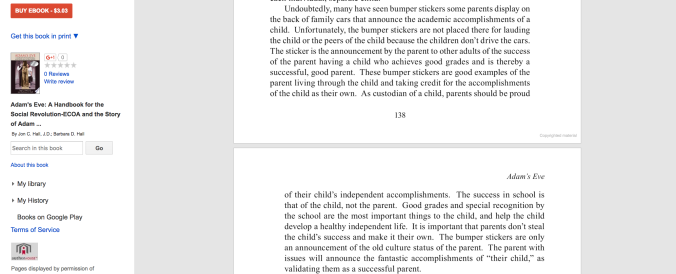
I haven’t actually read more than this excerpt, but I probably should.
Were I more clever at that age, I likely would have quipped that the Christian-Judeo God was essentially Dina Lohan, then. Except that I’m actually a whole year older than Lindsay Lohan, so she wasn’t even a thing at the time this message was being coded in my impressionable mind. Anyway, in contrast to God being responsible for everything good in our lives and about us, it was similarly made clear that the blame for anything bad, especially in what we (women) did, rested with us and the fallibility of the human condition of free will.
Even then, it was difficult to see my free will as a bad thing, because my handling of free will made me view gays as people deserving of rights, for example; my free will made me decidedly uncomfortable with the overt expression my Christian-identifying family demonstrated towards other faiths, ethnicities, and identities. For my troubles, I was labeled as spiritually sick; it was an annual event to be threatened with removal from my public school and abandoned to a Christian school the following year if I didn’t get my act together. As a fun post-script, it’s fun to note that I’m still generally regarded by members along my maternal line as spiritually unwell for a host of reasons, not the least of which concerns my spiritual awakening to witchcraft as a teenager. I actually developed an interest because the first group of friends I made independently from my twin sibling showcased their desire to learn about the craft as well.
Picture it: The year was 1999, freshman year of high school, and the instinct to resign myself to “outsider” status was especially prevalent in the months following the Columbine Shooting, when everyone who had an interest in the occult or black trench coats was regarded with suspicion, despite the fact that bullying and outcasting had absolutely zero to do with the shooting itself.
Edit #4: If you still think that Columbine is reflective of the school shooting phenomenon, please consider reading Dave Cullen’s exhaustive book on the subject, gathered through interviews and reports dating back to the days immediately following the massacre. Let’s just say it had little to do with bullying.
As far as an interest in the occult and a trench coat, well, I had both, so it was established fairly early into my youth that I would never be a nominee for Prom Queen. Many of the parents of my friends from my younger days were wringing their hands about the “dark influence” Harry Potter threatened to have over their children. Interestingly, my own interest in the occult never lead me to reading Harry Potter; to this day, I’ve yet to read a single page, despite the admitted badassery of J. K. Rowling.
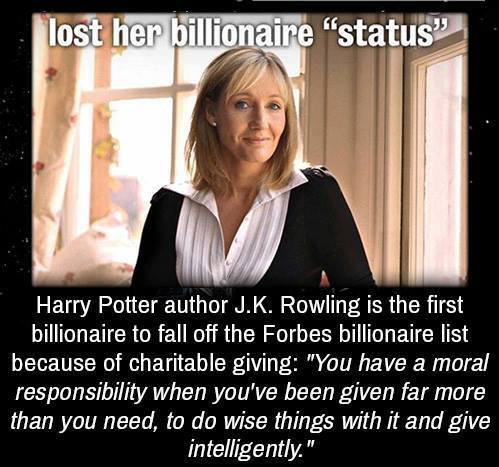
Seriously, I don’t even have to Google it. But if I had to, I would. Because as uttered by Steve Martin in the amazing movie ‘Home,’ “The internet does not lie!”
Additionally, most of my middle school friends were uncovering their own interests, presented as divergent from mine; these new friends offered an opportunity to re-define myself outside of the Christian presentation that had begun to define the friendships of my earlier tribe. I couldn’t continue to fake it, pretending that the people of my past brought anything to the future that I wanted for myself. I couldn’t stomach the continued smug arrogance that drove interactions when people discovered they attended the same church, or had equal emphasis placed on the priority of Jesus in their lives. I refused to believe each time I acted out, it was the result of the inner failure of femininity as ordained by a masculine construct.
So I looked elsewhere, and I found the weirdos who still jibe with me to this day, and also helped me uncover my spiritual self. And the discussion of witchcraft soon created the bonds that brought me into the circle of my high school clique. Lunch period became our time to gather, browsing through dog-eared copies of grimoires, as we attempted to turn necklaces with clay pendants ordered from Oriental Trading Company into protective amulets. Things went well for about a month, until my parents caught me wearing a pentacle necklace I forgot to take off. Despite it being Halloween, I was quickly reminded about their belief in the authoritarian style of parenting and the support for sparing the rod leading to spoiling the child.
That put my belief system on hold, though my friendship circle stood firm. Eventually, everyone went on their own spiritual path, and behind the scenes, I nursed a lasting fascination with Wicca as a system of faith and lifestyle. My parents exercised no discretion over the books I checked out from the library, so I became a practicing witch through turning the pages of nearly every spiritual tome I could get my hands on, especially if they were authored by Silver Ravenwolf. I’m not linking to Silver’s work now because as an adult, I generally regard her as the Jerry Falwell of pagans, and would prefer to divert clicks to the works of more inclusive authors instead.
Which I’ll do.
Some other time.
…maybe?
Edit #5: In all seriousness, much of this entry has relied on humor, especially satire and exaggeration, to chronicle how I arrived at my current identity with my spiritual faith at its core. The truth is that I’ve always been consumed by a need to reorganize the accepted social order, and it comes from being someone who lacked a concrete sense of self and identity through a multitude of life experiences. At 32 years old, I have an appreciation for what it means to be a person because of just how many intense experiences I had where that personhood was negated. That personhood was not only defined by being female and a witch, but tightly controlled to the point of negation due to being female and something other than a Christian.
In trying to explain this complicated tapestry of a life to some dear friends recently, it was suggested that it would be worthwhile to write it all down. Naturally, I know my own life story, and despite being a published writer, it’s still difficult to understand what motivates anyone to want to know what it is I have to say, or why. Still, the idea that I might be able to provide a lifeline for others is too tempting to ignore completely, so I conceded defeat and agreed to start a blog to provide some attempt at coherence as to how this modern mama manages to practice magic, achieve mediocrity at parenting, tackle social justice issues despite a shitty internet connection, and carve out something of a hilariously humble homesteading life while smack dab in the middle of the suburbs of northern California.
If I were trying to sell you something, at this point, I would probably offer up a plug of a video with introductory pricing. Lacking that, however, I’ll simply advise you to stay tuned for the next update, whenever that may be.
Edit #6: But for a small–yet still entirely unreasonable fee–I might be open to accepting “donations.”